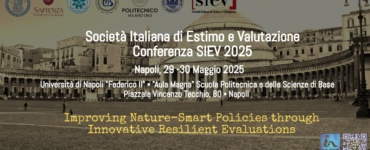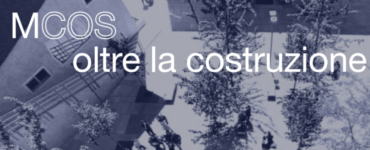A special issue of Buildings (ISSN 2075-5309). This special issue belongs to the section “Architectural Design, Urban Science, and Real Estate“.
Deadline for manuscript submissions: 31 December 2024
Dear Colleagues,
The current context is strongly characterized by the economic and environmental emergencies in a framework of events—defined as “anomalous” by many scientists and experts—which are putting a strain on historical heritage and natural and urbanized territories: war events, instability, and catastrophes have highlighted the problem of the fragility of these contexts and the “fragility of memory”.
Security (as a piece of the prevention, protection, reconstruction, and management processes of territories and historical heritages) and identity seem to be in opposition: this is a key issue that must be addressed through integrated approaches capable of overcoming the disciplinary fences (without renouncing the specific and advanced theoretical-disciplinary subjects) and to experiment with interdisciplinary research and projects.
In particular, the question of interest is what are the premises and prospects for new approaches and evaluation methods to support sustainable strategies of replanning and reconstruction of historical heritage, in contexts of crisis, in places affected by natural disasters or those caused by man.
For seismic events, wars, climatic emergencies, etc., the scientific community of those who estimate and evaluate these processes are called to identify practices, methods, and experiences in which the planning, monitoring, and evaluation process does not only take into consideration the physical reconstruction of damaged sites, but also innovative models for valorizing the “post-disaster landscape” and of the tangible and intangible heritage, made up of values of memory and identity and of architectural languages and local technical knowledge. Sustainability must be addressed as a systemic concept that involves environmental, economic, and social relationships; heritage sites do not, in fact, have exclusively value in themselves, as recognized by protection restrictions, but take on a broader meaning as expressions of socially shared value, and their conservation/reconstruction becomes fundamental to guarantee the psychological well-being of man and society. This issue opens complex challenges related to the recognition of collective memories for the different communities of inhabitants involved in crisis contexts, and interdisciplinary approaches are required to identify, protect, and transmit these fragile values. The theme of reconstruction is not only reuse, but also protection of memory; for example, a choice between adaptivity and selective deconstruction, evaluation, and control of investments: the perspective is short-, medium-, and long-term, and the economic perspective is no longer linear, but needs to be revised to follow a circular perspective.
In these advances in reconstruction practices, a non-secondary piece is also that of the decision support systems oriented towards the definition of a shared vision for the future development of these contexts: approaches that incorporate the background of expert knowledge, the analysis of the context, the interpretation of community needs and preferences, the mapping of stakeholders, and the elaboration and co-design of reconstruction scenarios. From this perspective, people-centered approaches can be an opportunity to build a more democratic and inclusive heritage discourse.
Given these premises, in the reasoning on the aspects of sustainability and valorization, the approaches to support decision-making and the judgments of economic-financial and economic-social convenience must include the following issues:
- Market value, cost to build, and cost to rebuild;
- Convenience, revenues, and opportunity costs;
- Risk and responsibility;
- Memory and identity.
The key questions that can be addressed are as follows:
1) Are traditional investment analysis tools still adequate and is it possible to measure and verify the convenience and feasibility of this process of recovery/reuse and reconstruction?
2) How are market values and cost dimensions being redefined in light of the phases of the rebuilding cycle?
3) What sustainability assessment approaches are adopted to plan, evaluate, and monitor reconstruction interventions, in the light of innovative models that take into account the phases of deconstruction, storage, and any reuse or disposal of the rubble?
4) How to estimate and consider the “opportunity costs” in the choices of strategic replanning and reconstruction of cultural heritage?
5) What feasibility assessment approaches are being developed to rebuild and enhance existing assets in crisis conditions, taking into account identity values and memory components? What approaches should be used to capture these values and relate them to the process of physical replanning and reconstruction?
6) What decision support systems can be adopted in order to achieve a more equitable and inclusive process in reconstruction interventions?
All contributions providing research results, experiences, and applications on these topics are welcome.
Call for Papers (link to Special Issue)
Dr. Cristina Coscia
Prof. Dr. Carla Bartolozzi
Dr. Daniele Dabbene
Guest Editors















Aggiungi commento